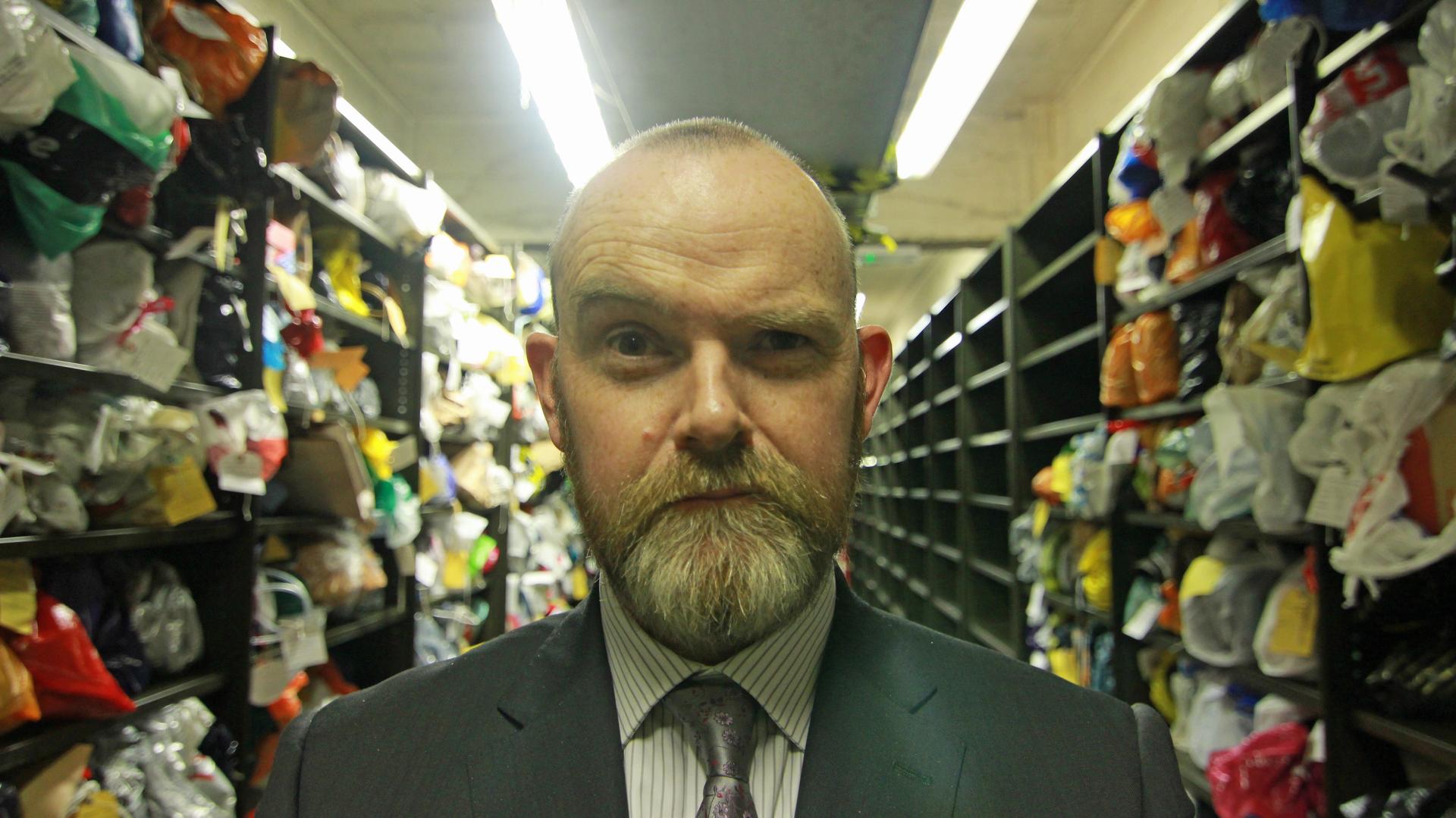Paul Cowan is the Manager of Transport for London's Lost Property Office. At any one time his warehouse holds 300,000 lost objects ranging from prosthetic limbs to ipads.
Paul Cowan is a man who loves his job. He just can't hide it. One of the first items he shows me is the office collection of novelty umbrellas. "Oh that's fantastic — It's a pirate umbrella! isn't that great? I've never seen one like that!"
Each day when Paul arrives at the Transport for London's lost property office, no one could more pleased than him to be dealing with the hundreds of objects left daily on the city's buses, subways and cabs.
Next up is the shelf of forgotten crutches.
"They fascinate me," he says. "I'm thinking you've got onto the bus or train with some crutches, and you've got off at the other end, not needing them. What's the explanation? Could it be the mysterious healing power of the London Transport network?"
IMG_1173.jpg&w=1920&q=75)
Paul kept a jar of cremated ashes on his desk for years, until eventually it was possible to trace the family and give it back.
And he says he can read how this city has changed in the items people leave behind. What London forgets forms a kind of memory of the city's collective fears and obsessions.
During World War II, this warehouse was filled with gas masks and helmets. "Now fashions have changed. Now when there's a new model mobile phone … we can time it to within 24 hours before we get our first in."
Standing in the storeroom, I realiie there are two ways to look at these groaning shelves.
One is to feel the loss, the emotional loss. All those moments of rising panic when a precious thing was searched for and ended up here instead. Eighty per cent of the objects in this warehouse never get back to their owners.
But there's another, more positive way. Every iPhone, child’s toy and digital camera is also tribute to the honesty and decency of a Londoner who found that item, and passed it on to Paul's team. The biggest cash find to date was $21,000 left on the backseat of a cab. The owner wept when he got that back.
And an 80 perent unclaimed rate also means 20 percent success. By the laptop section, Paul tells me he has a message for visitors to London who might lose something.
"Our motto is Every Journey Matters. And people here may be more honest than you expect. Someone who has lost something themselves may find your property. And they empathize. They know the pain. And they'll hand it in to us to give you the best opportunity to reclaim your property."
Every day, reporters and producers at The World are hard at work bringing you human-centered news from across the globe. But we can’t do it without you. We need your support to ensure we can continue this work for another year.
Make a gift today, and you’ll help us unlock a matching gift of $67,000!
